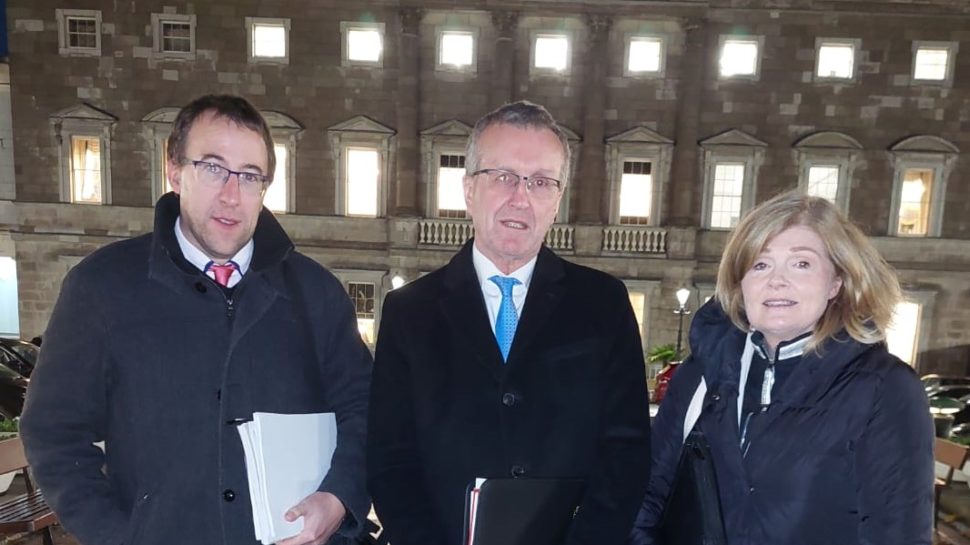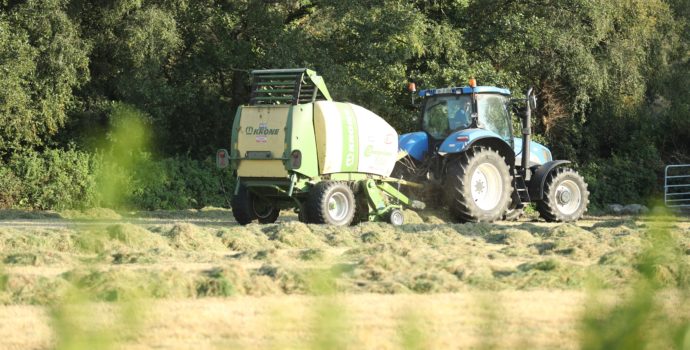IFA Discuss Commission on Taxation Report with Budget Cmttee on Budget Oversight

IFA President Tim Cullinan said the full economic impact of any proposals from the Commission on Taxation has to be thoroughly understood, not just in isolation but also the cumulative effect, before implementation.
Addressing the Oireachtas Select Committee on Budgetary Oversight this evening, Tim Cullinan said there are other concepts which IFA agrees with, especially adopting ‘equity/fairness’ as a core principle in the design of our future taxation & welfare system.
He said IFA was disappointed not to be afforded the opportunity to have a representative on the Commission, and IFA has serious concerns with many proposals within the Commission report.
“Many of the proposals, for example the progressive removal of reduced VAT rates; capital taxes/charges; will, if introduced, undoubtedly have a disproportionate impact on farmers. This is why we need a full impact assessment,” he said.
Successive Governments have prioritised agriculture and food as a major economic driver for the rural economy, which explains in part the large suite of tax relief measures that are in place to support the sector, spanning multiple facets.
Tim Cullinan said the Report doesn’t fully acknowledge, in any material way, the huge reliance many farm families and SMEs place on existing capital tax relief measures to support intergenerational renewal and sustain operations. Put simply, many businesses would exit without these supports.
“Let me be crystal clear on this. IFA is totally opposed to any reduction in Agricultural Relief or any decline in the Category A Capital Acquisition Tax threshold. The latter proposal completely contradicts the commitment made in the Programme for Government to increase the Category A threshold to €500,000 – something which would better reflect the reality of inflationary property and land price pressures,” he said.
The 90% Agricultural Relief from Capital Acquisitions Tax reflects the fundamental reality that land, as an asset, has a value far beyond what it generates in terms of income.
Any reduction in the relief rate would have a disproportionate impact on the farming sector and would be very punitive on farm families trying to organise orderly succession plans for the future. It would also place a huge tax burden on the next generation at a time when they will be seeking to invest in their farm enterprise.
We do however share the Commission’s view that there is a need to protect the active/genuine farmer and maintain the integrity of the Agricultural Relief.
On the Residential Zoned Land Tax, IFA Farm Business Chair Rose Mary McDonagh said the Commission recommends a differential treatment to agricultural land. However, IFA strongly opposes the inclusion of agricultural land within its remit at all.
“Most farms may be considered ‘asset rich, cash poor’. The correlation between wealth and income painted by the Commission simply doesn’t apply. Average on-farm assets in 2021 were estimated at €885k (87% relating to Land & Buildings). However, average farm income was less than €35k, with wide variation depending on farm size and farm system.”
One of the justifications too provided by the Commission for introducing the Site Value Tax is to support achieving our ‘Housing objectives’ – effectively forcing land sales by imposing a recurrent tax that makes retaining land ownership unsustainable.
“Farmers are private land owners who utilise land for food production and earn an honest living. Farmers hold land to farm, not hoard it as an investment. This undeniable fact has to be recognised,” she said.
In terms of some of the other proposals, given the typically low levels of profitability on-farm, IFA oppose any potential progressive increase in the PRSI rate, believing it would only add increased financial pressure on farm families, hinder entrepreneurial activity/innovation, and should be resisted.




